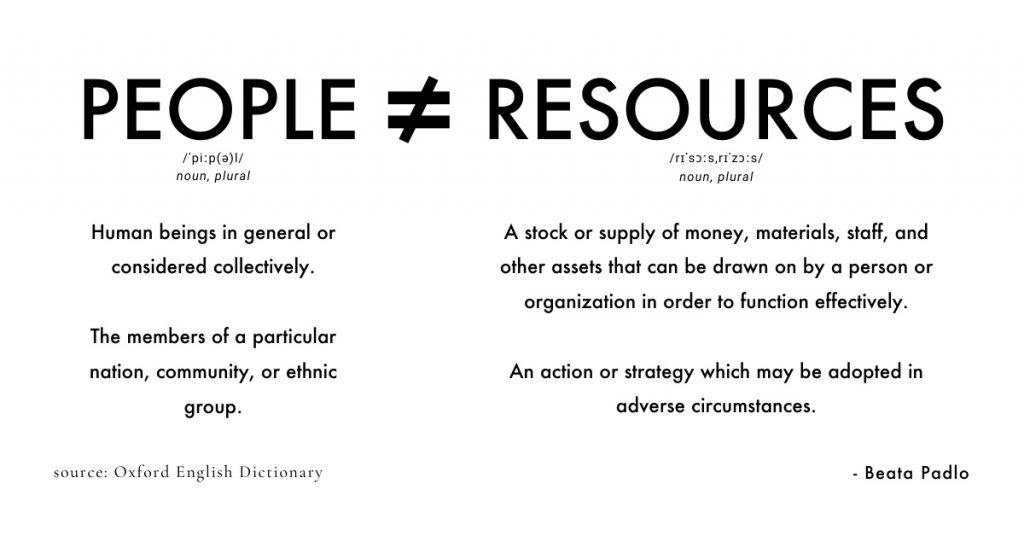When is the last time someone called you a “resource”? How did it feel?
I’m on a mission to bring the right vocabulary to our organizations, the one that supports growth and innovation! The type of vocabulary that matches our century with the challenges we have.

The above definitions from the Oxford English Dictionary can help you to get started.
We all have a choice! We can choose to call people resources and therefore treat them that way, or we can simply use the word, people. Not to mention calling them by their name! The right words create expected behavior.
History
I wondered where did this all come from and started to do some digging around. There are many thoughts and opinions out there in the world of internet by individuals that don’t enjoy that label, in some cases, they even mention that resources are nowhere near as bad as their managers call them!
“I’m curious, does anyone else have their management refer to you or your team(s) as ‘resources’? (…) We’re people, not a router in the closet.”
https://www.reddit.com/r/sysadmin/comments/4j6sc2/being_called_resources/
Resources are things that we can replace, like desks, computers, whiteboards… I think you get the idea. We don’t usually go home and hug your resource as exquisitely written in this article: http://agilepartnership.com/can%e2%80%99t-wait-to-go-home-and-hug-my-resource/
Future
Many managers face the resource challenge near a major launch or a delivery. When having to move people around teams seems to be the only choice. They are holding on to an old belief that when we hire or move people around, more work gets done. That belief seems to be routed in times when managers have no idea who they are managing.
In conclusion, in 2020 with many of us facing working remotely in the comfort of our homes, we are facing many immediate changes in your life and work-life. The risk of people being numbers in the spreadsheet or dollar signs has significantly increased. With less physical interaction it’s now more important than ever, to question the old paradigm and use language that fits our millennia. Let’s aim to change that, give feedback to those who have not upgraded their vocabulary and bring “people” into our organizations.
Here is a great tool you can use to help you or those around you get the idea:
